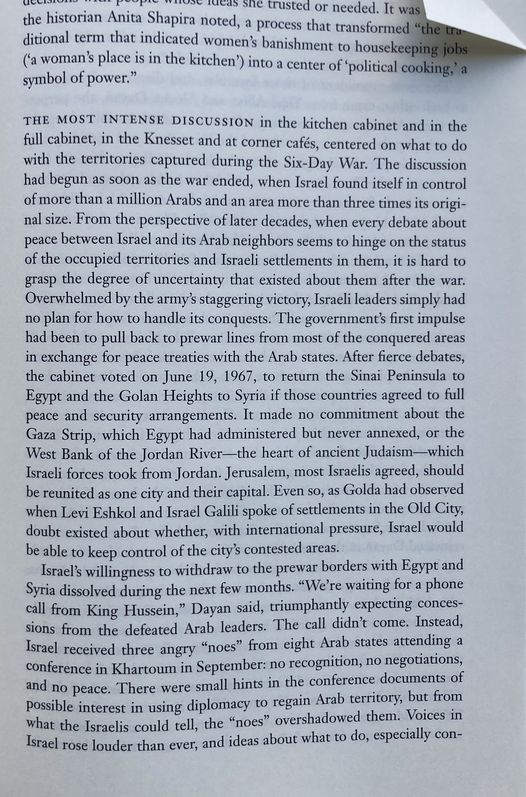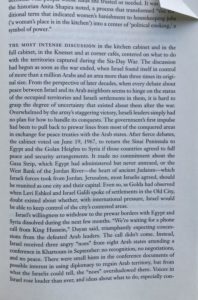Words of the Week: Francine Klagsbrun
On this International Women’s Day, it seems fitting that I’m continuing my way through Francine Klagsbrun’s Lioness: Golda Meir and the Nation of Israel.
Among the many attention-grabbing segments in this book, I’ve found myself rereading this segment. It’s quite a history lesson (or depending on your knowledge base, a reminder). Especially, as Klagsbrun notes, decades later.

